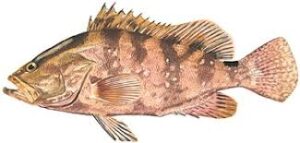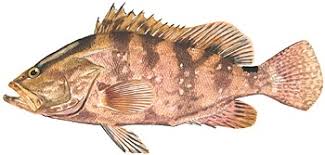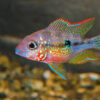Dragons and Blessing Ceremonies in Chinese Communities

In Chinese culture, dragons have long been revered as symbols of power, prosperity, and good fortune. They are central to the mythology, art, and religious practices of the Chinese people, and their significance is especially evident during blessing ceremonies. These rituals, which span a wide array of events from weddings to the New Year, are deeply embedded in Chinese cultural traditions, and dragons often play an integral role in these ceremonies.
This article explores the relationship between dragons and the blessing ceremonies in Chinese communities, examining how the symbolism of the dragon enhances the meaning of these sacred and celebratory occasions. From invoking blessings for prosperity and health to securing happiness and long life, the dragon’s role in blessing rituals highlights its importance as a protector and bringer of good fortune in Chinese culture.
The Dragon in Chinese Mythology: A Symbol of Blessings
The dragon in Chinese mythology is fundamentally different from the fearsome fire-breathing creatures found in many Western cultures. In China, the dragon is an auspicious and benevolent symbol, representing strength, good luck, and divine protection. It is associated with the natural forces of water, rain, and the elements, which are believed to be crucial for agricultural prosperity.
Historically, the Chinese dragon is depicted as a creature with the head of a camel, the body of a serpent, the scales of a fish, and the antlers of a deer. It is often shown with five claws (representing the emperor’s imperial authority), which further emphasize its divine and superior nature. These qualities are not just abstract attributes but are believed to have tangible effects on the lives of the Chinese people, particularly when it comes to their prosperity and well-being.
In many Chinese communities, the dragon is considered to bring blessings of wealth, success, fertility, and harmony. It is also believed to protect against misfortune and evil spirits. This profound symbolism has made the dragon an essential figure in Chinese blessing ceremonies, where its power is called upon to bring about favorable outcomes in various aspects of life.
The Role of Dragons in Weddings: Blessings for Love and Harmony
One of the most significant blessing ceremonies in Chinese culture is the wedding. In traditional Chinese weddings, the dragon plays an essential role in invoking blessings for the newlyweds, ensuring that their union is filled with love, harmony, and prosperity.
The image of the dragon, often paired with the phoenix, is used extensively in wedding decorations, clothing, and ritual items. The dragon and phoenix together symbolize the perfect balance between masculine and feminine energy, a theme central to the wedding ceremony. The dragon, as a symbol of strength and protection, is seen as bringing blessings to the groom, while the phoenix, representing grace and fertility, brings blessings to the bride.
In some traditional Chinese wedding ceremonies, a dragon dance is performed to usher in good fortune and banish evil spirits. The dance is usually performed by a team of dancers who manipulate a large dragon puppet, which is often accompanied by loud drumming to drive away negative energies. This ritual is believed to ensure that the couple’s marriage will be prosperous, harmonious, and blessed by the divine.
Dragons in the Chinese New Year: Blessings for a Prosperous Year
The Chinese New Year, or Spring Festival, is another occasion where dragons play a central role in blessing ceremonies. The festival is the most important holiday in China and is marked by various rituals intended to bring good fortune, prosperity, and happiness for the coming year. Among the many customs associated with the New Year, the dragon dance is one of the most iconic.
The dragon dance, which is performed in parades and during family celebrations, is believed to bring good luck and drive away bad spirits. The dragon is considered a harbinger of prosperity, and its movements are thought to stir up the positive energy necessary for a prosperous year ahead. In some regions, the dragon dance is performed at the entrance of homes or businesses to bless these places with good fortune.
In addition to the dragon dance, other elements of Chinese New Year celebrations also incorporate dragon imagery. For example, red envelopes (hongbao) containing money are often given as blessings to children and unmarried adults, with the dragon symbolizing the hope for a prosperous year ahead. The dragon’s presence in these New Year rituals serves to reinforce the idea that blessings are not only spiritual but also material, touching upon all aspects of life from health to wealth.
Dragon Blessings in the Qingming Festival: Honoring Ancestors
Another important event in Chinese culture where dragons feature prominently is the Qingming Festival, a time for paying respects to ancestors and visiting the graves of loved ones. While the Qingming Festival is primarily focused on ancestor worship, the dragon plays a role in blessing the deceased as well as those who are still living.
During the Qingming Festival, some communities perform rituals that involve offerings to the spirits of the ancestors. These rituals often include the burning of incense, the presentation of food, and the recitation of prayers. In some areas, dragon motifs are used in the decoration of ancestor altars or are included in ritual objects to ensure that the blessings of the ancestors will flow down through the generations.
The dragon is also invoked during Qingming as a symbol of protection for the living family members. It is believed that by paying homage to their ancestors and seeking the blessings of the dragon, families can ensure that their future generations will be blessed with good fortune, health, and prosperity. In this context, the dragon acts as a conduit between the living and the dead, helping to maintain the continuity of blessings across generations.
Dragon Blessings in Birth and Fertility Ceremonies
In Chinese culture, the birth of a child is a significant event, and blessings are often invoked to ensure the health, happiness, and success of the newborn. The dragon, as a symbol of fertility and prosperity, plays a key role in these ceremonies.
One of the most common ways that the dragon is incorporated into birth and fertility ceremonies is through the use of dragon-themed decorations and symbols. For example, dragon imagery is often included in the decorations for a baby’s room or on gifts given to the family. In some regions, it is traditional to give a child a small dragon-shaped pendant or charm to protect them from harm and to ensure they will grow up strong and healthy.
The dragon’s connection to water and rain also ties it to the fertility of the land and the family’s agricultural success. In rural communities, people believe that invoking the dragon’s blessings during a birth ceremony will ensure not only the well-being of the child but also the prosperity of the family as a whole.
Dragon Blessings in Business and Financial Success
The dragon is also a popular symbol in business and financial success. Many Chinese businesses incorporate the dragon into their branding, advertising, and architectural designs in order to attract prosperity and good fortune. It is common for business owners to display dragon imagery on their storefronts, particularly during the Chinese New Year, as a way of invoking blessings for a prosperous year.
In traditional Chinese Feng Shui practices, dragons are considered to be guardians of wealth. They are often placed in strategic locations within a business to attract positive energy and financial prosperity. The belief is that the dragon’s presence will help guide the flow of energy (Qi) and direct it toward wealth and success.
Dragon imagery is also used in business rituals. For instance, at the opening of a new business or shop, a dragon dance is often performed to bless the new establishment. The dragon is believed to invite wealth, success, and customers, ensuring the business’s prosperity and longevity.
The Cultural Significance of Dragons in Blessing Ceremonies
The dragon’s role in blessing ceremonies in Chinese culture is a testament to its deep and abiding significance. Dragons are more than just mythical creatures; they are vital symbols of protection, prosperity, and divine favor. From weddings to business openings, the dragon is invoked to ensure good fortune, to drive away evil, and to create a harmonious and prosperous environment.
In Chinese society, the dragon’s presence in blessing ceremonies represents a strong connection to both the spiritual and material worlds. It reflects the belief that blessings come not only from human effort but also from the divine, and the dragon, as a celestial being, acts as the intermediary between these two realms.
Ultimately, dragons in Chinese blessing ceremonies are a powerful reminder of the importance of balance and harmony in life. Their role in these rituals underscores the belief that true success and happiness come not only from wealth and power but from the blessings of nature, the heavens, and the ancestors. In this way, the dragon remains one of the most enduring and beloved symbols in Chinese culture, embodying both the aspirations and the spiritual connections that bind the people to their traditions.


